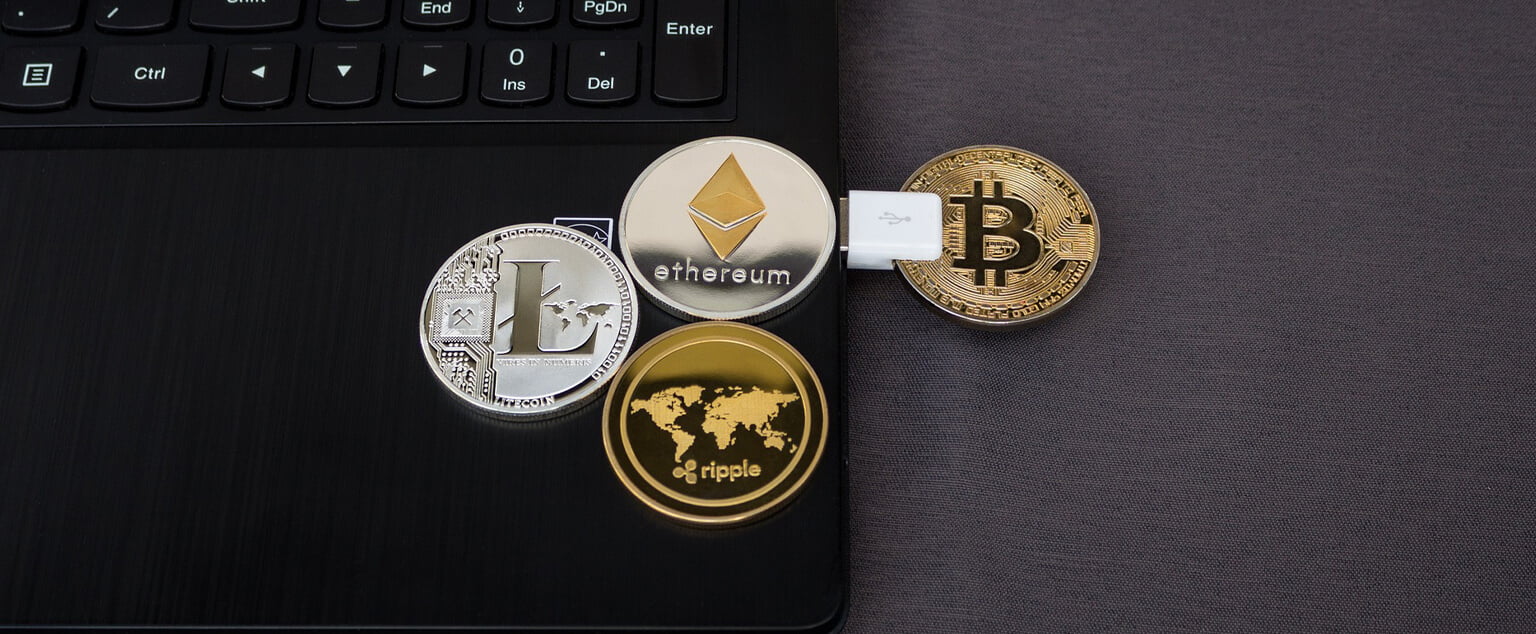Crypto wallets store your cryptocurrency’s private keys and keep them secure. They come in a variety of forms, including physical devices, software programs, and online services.
However, the concept of a crypto wallet, like that of cryptocurrency, is fairly abstract. Let’s take a closer look at these necessary crypto tools and how they function.
What is a Crypto Wallet?
The first thing to understand about crypto wallets is that they are not like the billfold in your purse or back pocket that holds cash and credit cards. Rather, a crypto wallet is a type of digital storage that allows you to secure access to your cryptocurrency.
Cryptocurrency is a highly abstract store of value that does not have a physical token like cash’s coins and bills. It exists only as a string of code on a larger blockchain. What exactly do you get when you buy Bitcoin (BTC)? On the Bitcoin blockchain, there is a public key and a private key.
Consider the public key to be similar to your bank account number you can share it with anyone, but it does not provide access to your funds. The private key functions similarly to a bank account password. If you share it with anyone, they may steal all of your money.
You may lose access to your crypto if you lose your private key. Similarly, the person in possession of a private key has complete access to the crypto. It is critical to keep your private keys safe in a crypto wallet.
How do Crypto Wallets work?
A cryptocurrency wallet contains the public and private keys required to send, receive, and store cryptocurrency. When you buy cryptocurrency, the company that sold it to you will most likely provide you with a wallet to store the digital coins. Because it is online and connected to the internet, this is referred to as a hot wallet.
Cold wallets are essentially hardware devices such as thumb drives. You simply transfer your coins from your hot wallet to your cold wallet once you have one.
Types of Crypto Wallets
As previously stated, there are two types of cryptocurrency wallets: hot wallets that are connected to the internet and cold wallets that are not. Let’s take a closer look at these.
Paper Wallets
A paper wallet is the most basic cold wallet to understand and use. It’s exactly as it sounds: a piece of paper with your keys written on it.
Hardware Wallets
A hardware wallet is a more secure type of cold wallet. Hardware wallets, like USB drives, help keep your private keys safe from hackers who would need to steal the physical wallet to gain access.
Hardware wallets add an extra layer of security to paper wallets by requiring users to enter a PIN in order to access the device’s content. While these PINs add an additional layer of security, if you forget your PIN, you lose access to your coins.
A hardware wallet will typically cost between $50 and $150, though there are some much more expensive options.
Online Wallets
Your hot wallets are online wallets, also known as software wallets. These wallets, whether desktop, mobile, or web-based, require an internet connection and are more accessible but also more vulnerable to hacking than cold wallets.
If you only trust your infrastructure, it makes sense to develop desktop wallets such as Electrum and Wasabi Wallet. This avoids involving a third party and allows you to be solely responsible for the security of your wallet.
Meanwhile, web-based wallets are mostly accessible through browsers and allow you to transact anywhere you have an internet connection.
Custodial Wallets vs. Non-Custodial Wallets
Now for some additional crypto jargon. Non-custodial wallets give you access to your own data. These are frequently the preferred wallet type among crypto enthusiasts because they do not rely on a third party to secure your private keys. Non-custodial options include Exodus and MetaMask offline wallets. These wallets are marketed as secure, which means they are less vulnerable to hacks.
Custodial wallets, on the other hand, are wallets provided by cryptocurrency businesses such as Gemini Wallet, BlockFi Wallet, or eToro. If you use this wallet, you are effectively outsourcing your private keys to them. However, these wallets have some advantages in terms of accessibility. You log into your account and enter the location where you want to send your cryptocurrency if you want to access and send coins from this type of wallet.
These hot wallets typically include additional features such as being free and allowing you to stake your cryptocurrency.
How to get a Crypto Wallet?
It’s not difficult to obtain a cryptocurrency wallet. Some cryptocurrency exchanges, such as Coinbase and Gemini, provide an online cryptocurrency wallet. If you want a cold wallet, you can get one from a manufacturer online or even from Amazon.com.
However, there are a few factors to consider when selecting a cryptocurrency wallet:
- Customer service: If you’re new to cryptocurrency ownership, it’s a good idea to select wallet support that is always available and helpful.
- Fees: Transaction fees may be charged by third-party hot wallets, reducing your profits.
- Security: Check that your wallet provider is reliable and has adequate security measures in place to protect your cryptocurrency keys.
- Types of cryptos supported: Some wallets may only support a few cryptocurrency projects, whereas others may support hundreds. For example, if you want to buy Cardano (ADA), you must ensure that the wallet supports that cryptocurrency.
With these factors in mind, Leinweber claims that there is no such thing as a “best” crypto wallet because each wallet has its own set of strengths and weaknesses.






